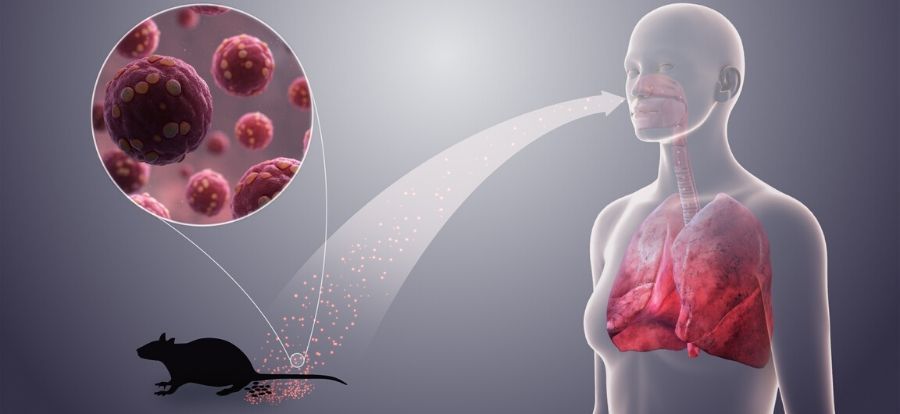OVERVIEW:
At present, the terror of the coronavirus and the dreaded disease COVID-19 is currently gaining momentum, and a new virus ‘hantavirus’ has emerged in China, which has also taken a life.
“Global Times” reported that a man in China’s Yunnan province was found to be hantavirus positive, who was killed while traveling on a chartered bus on his way to his workplace. According to “Global Times”, 32 other people on the bus at that time have also been tested.
WHAT IS HANTAVIRUS?
An infection caused by hantavirus is called “hantavirus disease”. Hantavirus or orthohantavirus is a family of virus mainly spread by rodents. According to the Centers for Disease Control and Prevention (CDC), it causes different diseases or syndromes in people worldwide.
Hantaviruses are named differently in different parts of the world. In the US region, it is called “New World” hantavirus and may cause hantavirus pulmonary syndrome (HPS), also known as hantavirus cardiopulmonary syndrome (HCPS). While in Europe and Asia it is called “Old World” hantavirus and may cause hemorrhagic fever with renal syndrome (HFRS).
In January 2019, nine people infected with hantavirus died in Patagonia. After this, tourists were also warned. According to the CDC, death rate of hantavirus is 38% and there is no specific treatment of this disease.
WHAT CAUSES HANTAVIRUS?
According to the CDC report, the virus is transmitted from rodents such as rats and squirrels.

A person may get infected if he or she comes in the contact of the feces, urine or saliva of rodents. However, the virus generally does not pass from person to person. It may take one to eight weeks for the infection to be detected.
WHAT ARE THE SYMPTOMS OF HANTAVIRUS DISEASE?
Early Symptoms:
Early symptoms may include —
- Fatigue
- Fever
- Muscle aches (especially in the large muscle groups such as back, hips, thighs, and sometimes shoulders)
There may also be —
- Headaches
- Dizziness
- Chills
- Abdominal problems, such as diarrhea, nausea, vomiting, and abdominal pain
About half of all hantavirus pulmonary syndrome (HPS) patients experience these symptoms.
Later Symptoms:
It may include —
- Coughing
- Shortness of breath
If the condition of the infected person worsens, there may be difficulty in filling the lungs with water and breathing.

WHAT ARE THE PREVENTION OF HANTAVIRUS?
The prevention of hantavirus may include —
- Minimize or eliminate the contact with rodents in your home, workplace, or campsite
- Seal up holes and gaps in your home or garage
- Place traps in and around your home to decrease rodent infestation
- Clean up any easy—to—get food
- Keep the grass short
- Keep woodpiles away from the building
- Use plastic or rubber gloves when cleaning up signs of rodents, handling dead rodents
NOTE — Recent study reveals that the individuals having illness with hantavirus developed the disease after having the frequent contact with rodents. On the other hand, many individuals who have illness reported that they hadn’t seen any rodent or rodent droppings at all.
HOW IS HANTAVIRUS DIAGNOSED?
It is difficult to diagnose hantavirus if a person has only been infected a few days. The reason is that early symptoms such as fatigue, fever and muscle aches are easily confused with influenza.

However, if the person is experiencing the symptoms such as fatigue and fever and also has a history of rural rodent exposure, together with shortness of breath, it would be strongly suggestive of hantavirus pulmonary syndrome. In this case, the person should see their physician immediately.
HOW TO TREAT HANTAVIRUS DISEASE?
Now you may have a question in your mind — Is the hantavirus curable?
No !!
There is no specific treatment, vaccine or cure for hantavirus infection. But, if the infected person is recognized early and receive medical treatment in an intensive care unit (ICU), can help with recover.
Therefore, if you have symptoms of deep muscle aches, fever and experiencing shortness of breath and if you have been around rodents, see your doctor immediately. And, be sure to tell your doctor that you have been around rodents.
HOW COMMON IS HANTAVIRUS?
According to Canadian Centre for Occupational Health and Safety (CCOHS), hantavirus was first identified in 1994 in Canada. When researchers evaluated other previous cases, they found that there were at least three other cases before 1994. The first case was found in 1989.
According to the Public Health Agency of Canada, since the year 1989 the confirmed cases of hantavirus are 109 and about 27 deaths in Canada (as of January, 2015)
RELATED ARTICLES:
- Coronavirus (COVID-19) : Symptoms, Causes, Prevention and Treatments
- Acute Encephalitis Syndrome : Symptoms and Treatments
- Bird Flu (Avian Flu) : Causes, Symptoms and Prevention
- Nipah Virus Infection : Causes, Symptoms, Prevention and Treatments
- Zika Virus Disease : Causes, Symptoms and Treatments
- Ebola Virus Disease : Causes, Symptoms and Treatments
REFERENCES
- Centers for disease control and prevention (CDC); Source :National Center for Emerging and Zoonotic Infectious Diseases (NCEZID), Division of High-Consequence Pathogens and Pathology (DHCPP)
- Mediline Plus, Hantavirus Infections
- Canadian Centre for Occupational Health and Safety, OSH Answers Fact Sheets
- Early Signs and Symptoms of Hantavirus Pulmonary Syndrome (HPS), Author: Charles Patrick Davis, MD, PhD, Editor: Melissa Conrad Stöppler, MD
- A case of hantavirus has been reported in China. Here’s why you shouldn’t worry, Ryan W. Miller; USA Today
